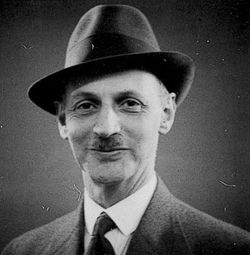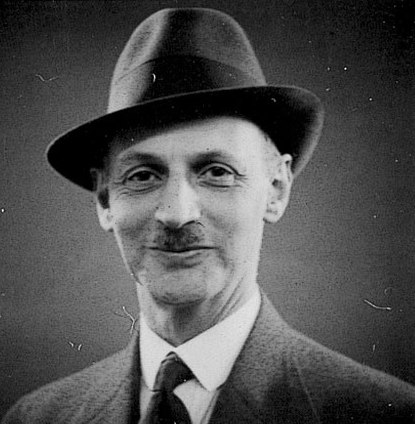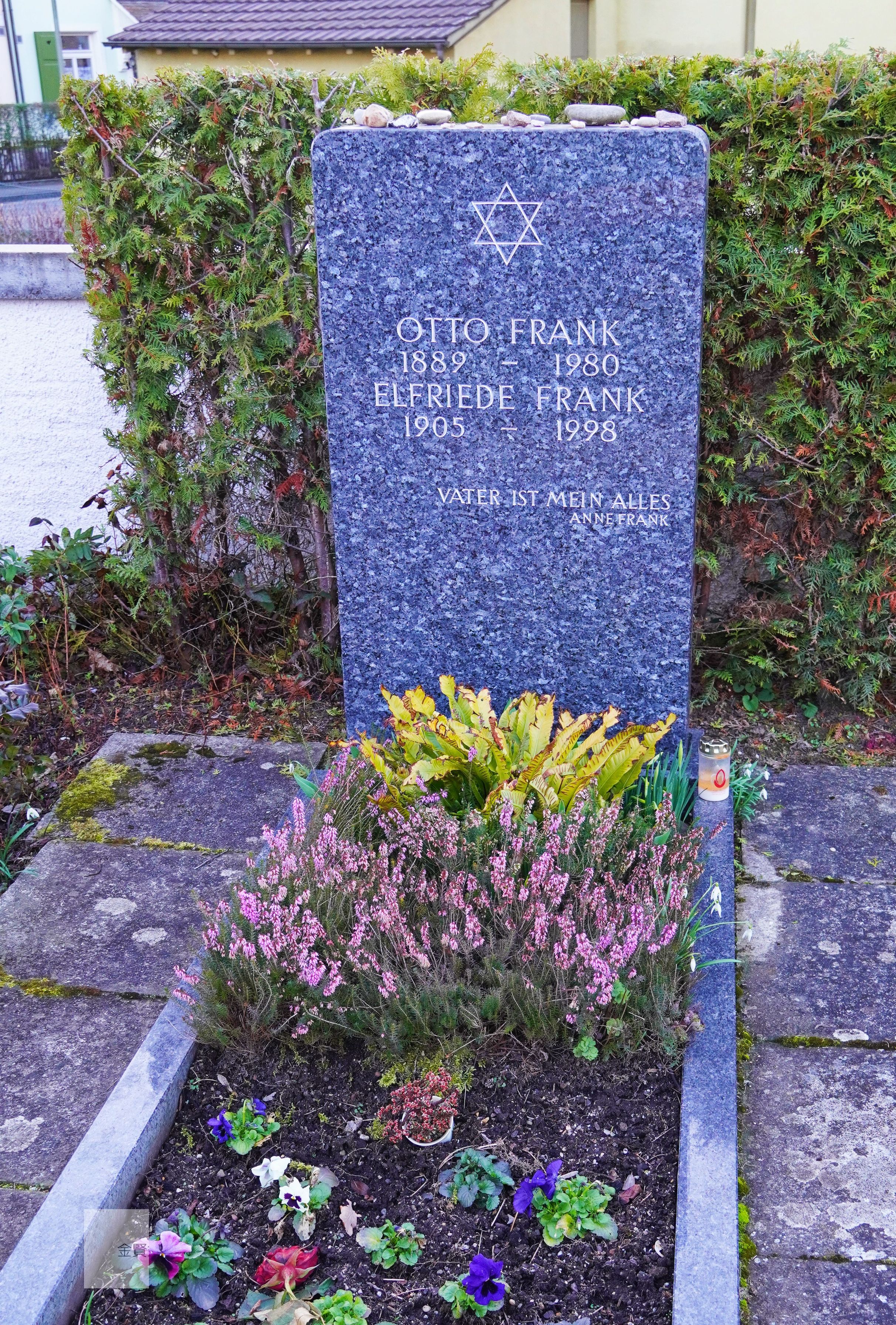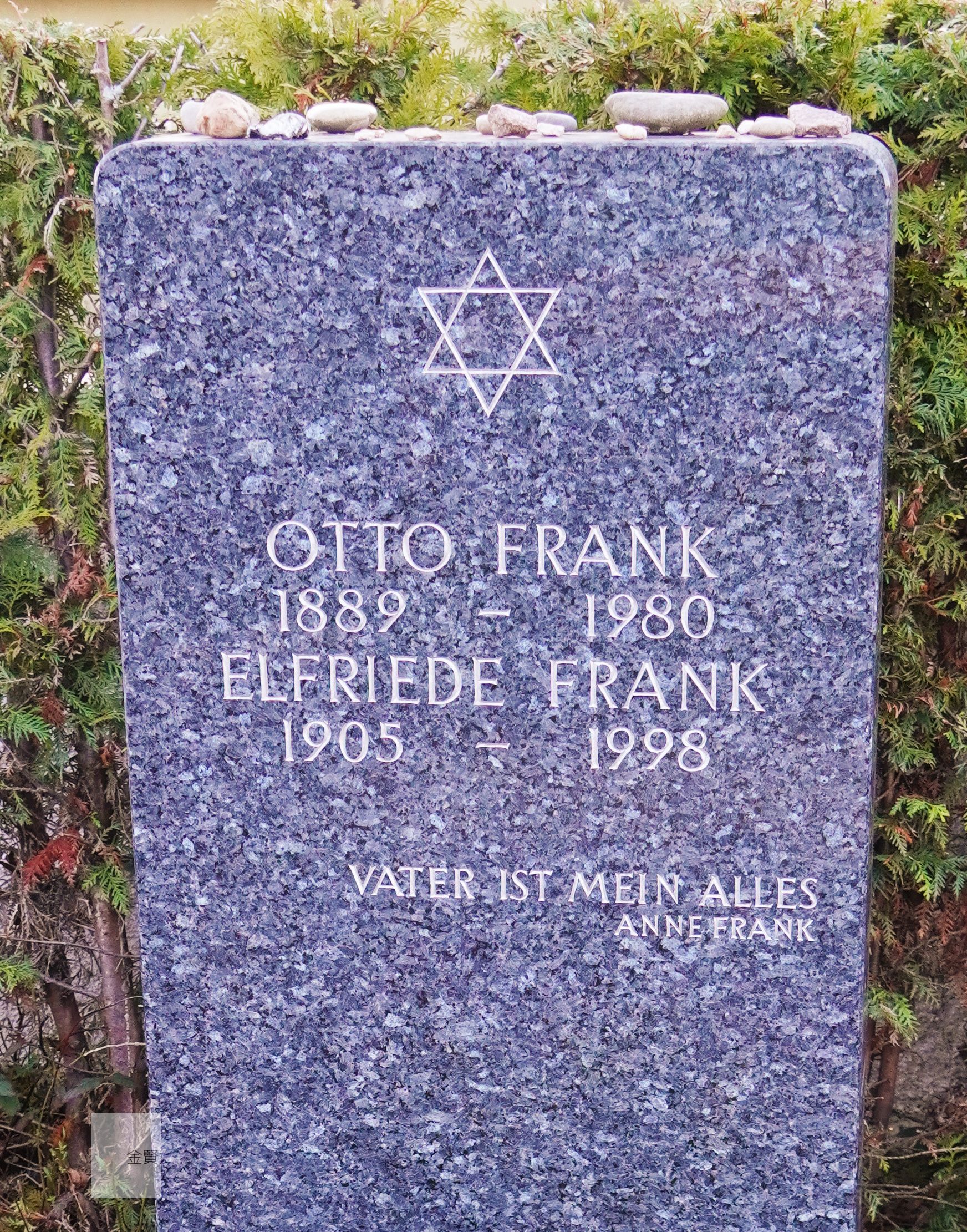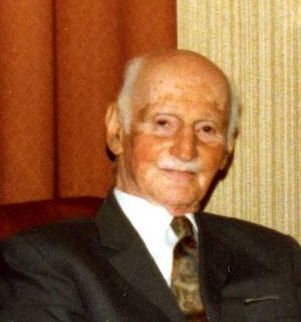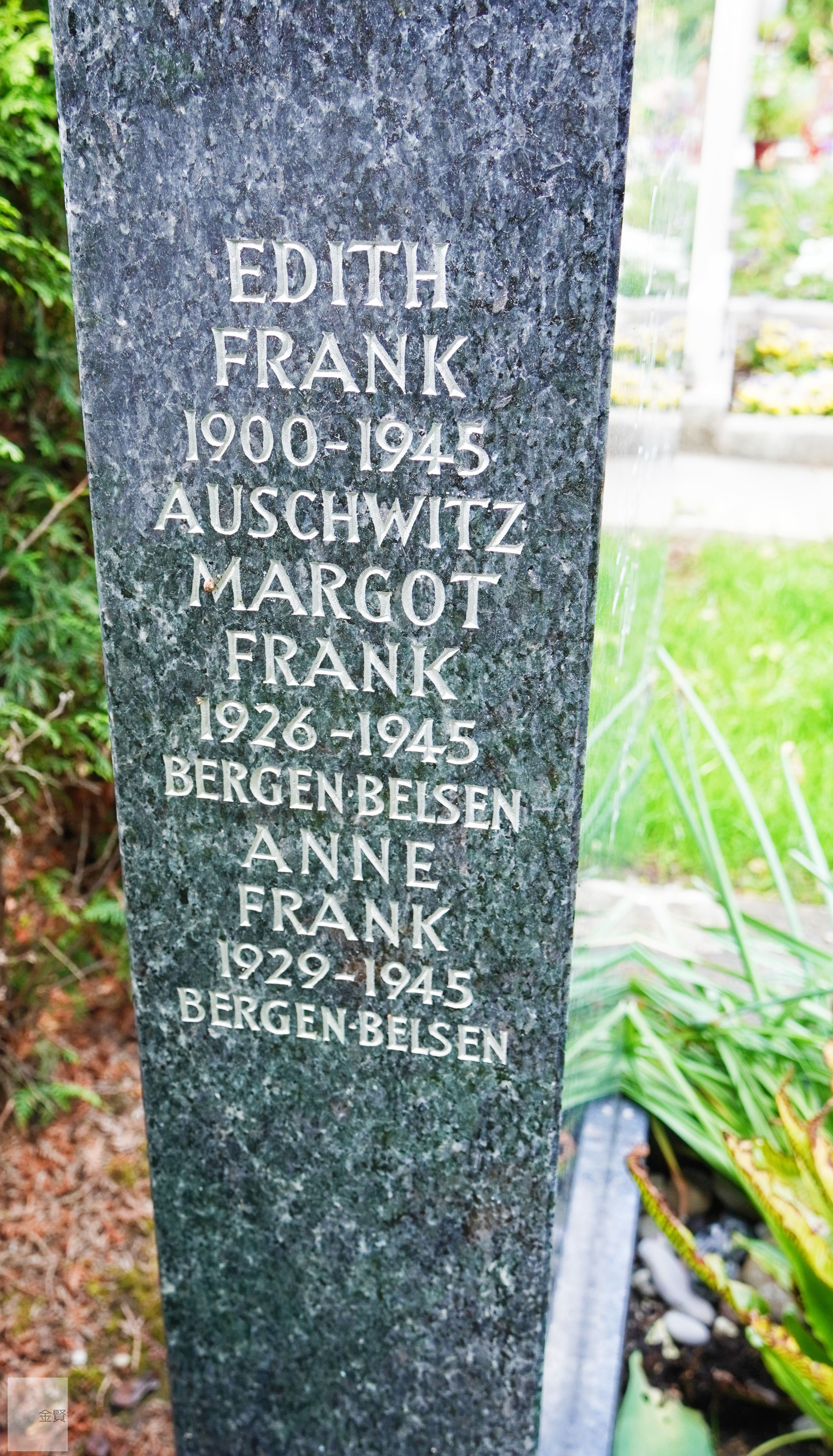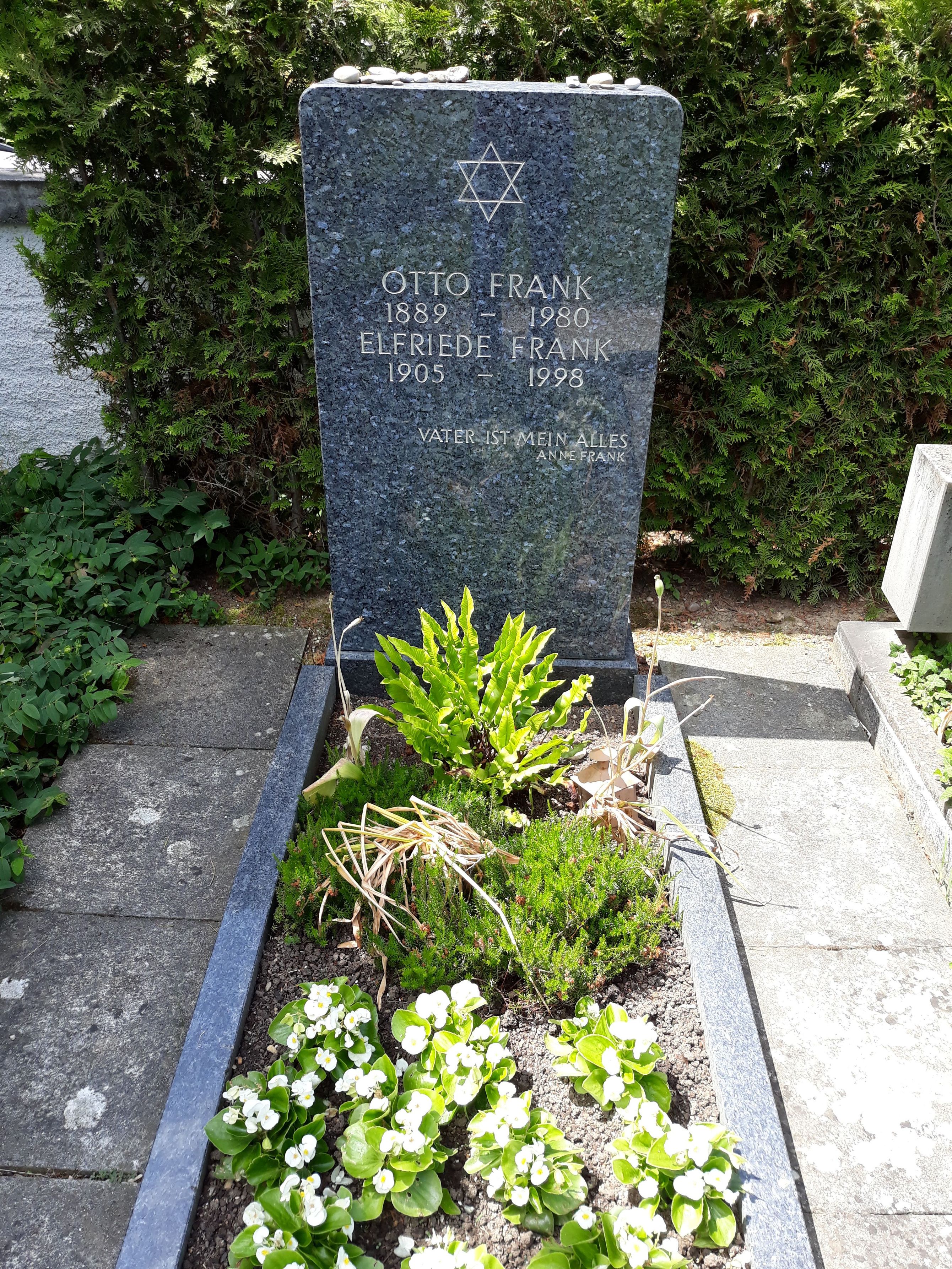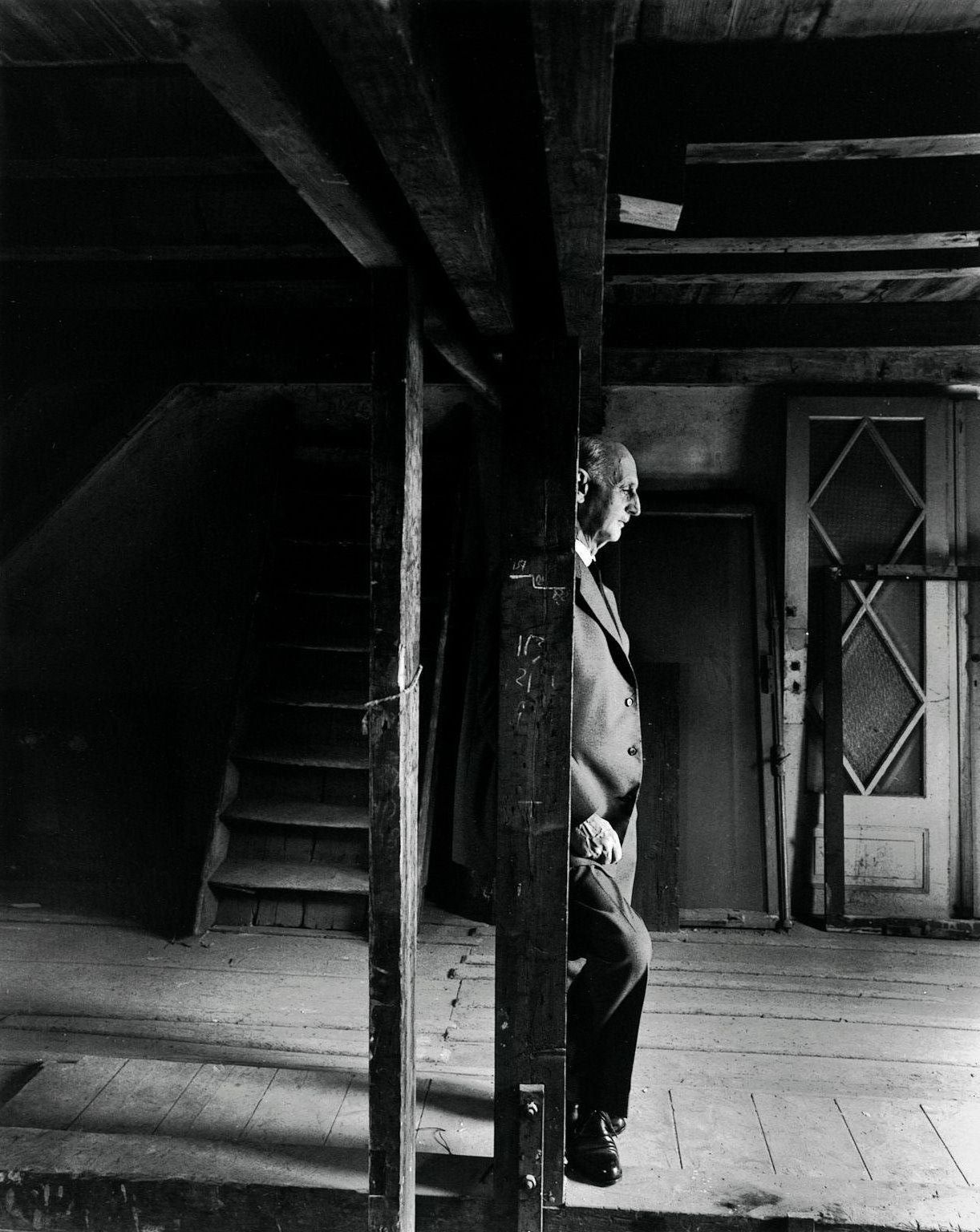Holocaust Survivor. He gained recognition as being the father of World War II diarist Anne Frank. Born Otto Heinrich Frank in a Jewish German family, he served in the German army in World War I, being discharged at the rank of lieutenant. After the war, he came home to work for the family business, a bank founded by his father, Michael. His education comprised of him attending for one year the University of Heidelberg, before going to New York City for an internship at Macy's Department Store. After marrying Edith Hollander in 1925, the couple had two daughters, Anne and Margot. With Germany in financial depression, his father's bank finally declared bankruptcy in 1934. In the summer of 1933, to escape Nazi Dictator Adolf Hitler's persecution of the Jews in Germany, he moved the family to Holland, but Nazi Forces invaded the Netherlands on May 10, 1940 and the Frank family went into hiding in a secret annex of a house on July 6, 1942. The Franks and the friends, with whom they hid, were betrayed and arrested by the Nazis in August 4, 1944. After being taken to a concentration camp, the men and women were eventually separated when they arrived in Poland at the concentration at Auschwitz, and he never saw his wife and daughters again. The sole survivor of the group of eight, he returned to Holland after the war. He learned his mother has survived the war in Switzerland. Miep Gies, one of the people who helped sustain the group while in hiding, found Anne's diary in the secret annex after the arrests and kept it safe, and unread, in hope of Anne's return. In 1945 he was given his daughter's diary after learning that Anne and Margot had died in Germany in the concentration camp located at Bergen-Belsen. He shared portions of Anne's diary with friends and family, and with the positive response, he was led to the decision to publish the diary, which was first released in a Dutch edition in June of 1947. He remained involved with the diary and associated works such as the play and movie until the end of his life. He willed Anne's original diary to the Netherlands Institute for War Documents, with the copyright being held by the Anne Frank Fonds. From shortly after publication to his death, he faced law suits from Nazi sympathizers claiming slander as the diary was a work of fiction, which was never proven. He died in Basel, where he had moved with his second wife, who was a Holocaust Survivor, and stepdaughter
Holocaust Survivor. He gained recognition as being the father of World War II diarist Anne Frank. Born Otto Heinrich Frank in a Jewish German family, he served in the German army in World War I, being discharged at the rank of lieutenant. After the war, he came home to work for the family business, a bank founded by his father, Michael. His education comprised of him attending for one year the University of Heidelberg, before going to New York City for an internship at Macy's Department Store. After marrying Edith Hollander in 1925, the couple had two daughters, Anne and Margot. With Germany in financial depression, his father's bank finally declared bankruptcy in 1934. In the summer of 1933, to escape Nazi Dictator Adolf Hitler's persecution of the Jews in Germany, he moved the family to Holland, but Nazi Forces invaded the Netherlands on May 10, 1940 and the Frank family went into hiding in a secret annex of a house on July 6, 1942. The Franks and the friends, with whom they hid, were betrayed and arrested by the Nazis in August 4, 1944. After being taken to a concentration camp, the men and women were eventually separated when they arrived in Poland at the concentration at Auschwitz, and he never saw his wife and daughters again. The sole survivor of the group of eight, he returned to Holland after the war. He learned his mother has survived the war in Switzerland. Miep Gies, one of the people who helped sustain the group while in hiding, found Anne's diary in the secret annex after the arrests and kept it safe, and unread, in hope of Anne's return. In 1945 he was given his daughter's diary after learning that Anne and Margot had died in Germany in the concentration camp located at Bergen-Belsen. He shared portions of Anne's diary with friends and family, and with the positive response, he was led to the decision to publish the diary, which was first released in a Dutch edition in June of 1947. He remained involved with the diary and associated works such as the play and movie until the end of his life. He willed Anne's original diary to the Netherlands Institute for War Documents, with the copyright being held by the Anne Frank Fonds. From shortly after publication to his death, he faced law suits from Nazi sympathizers claiming slander as the diary was a work of fiction, which was never proven. He died in Basel, where he had moved with his second wife, who was a Holocaust Survivor, and stepdaughter
Bio by: Jennifer M.
Inscription
Otto Frank. "Vater ist mein alles."--Anne Frank.
Family Members
Advertisement
See more Frank memorials in:
Records on Ancestry
Sponsored by Ancestry
Advertisement
